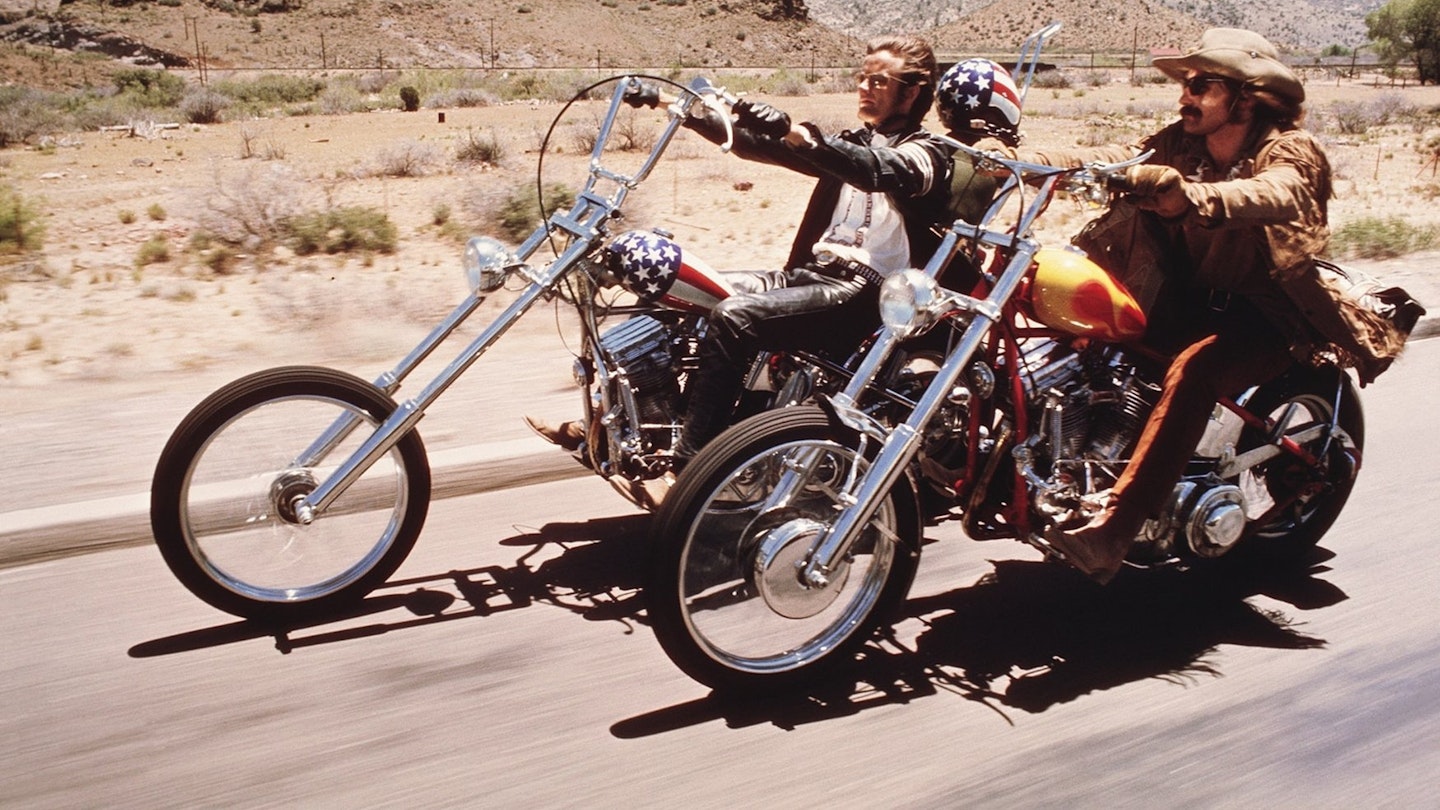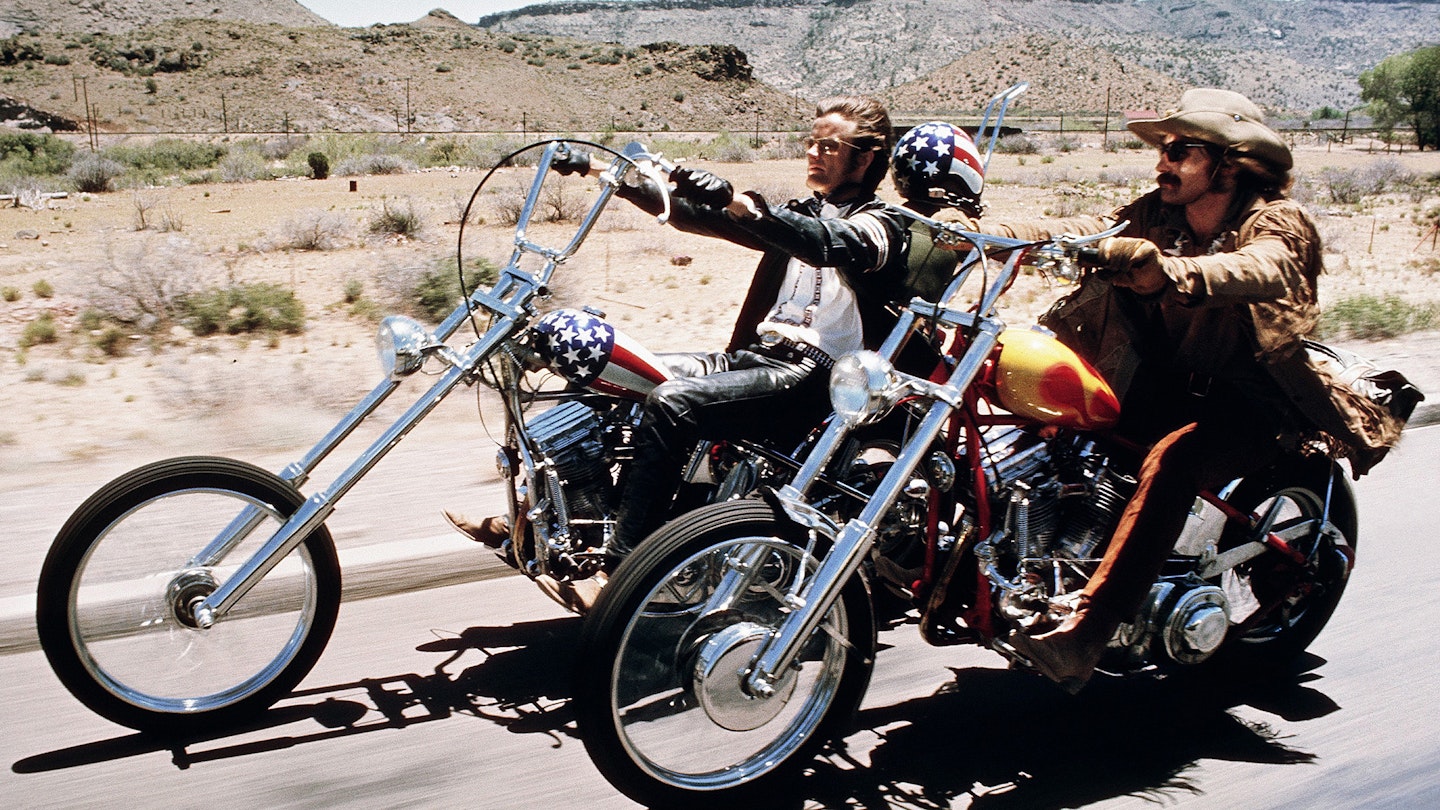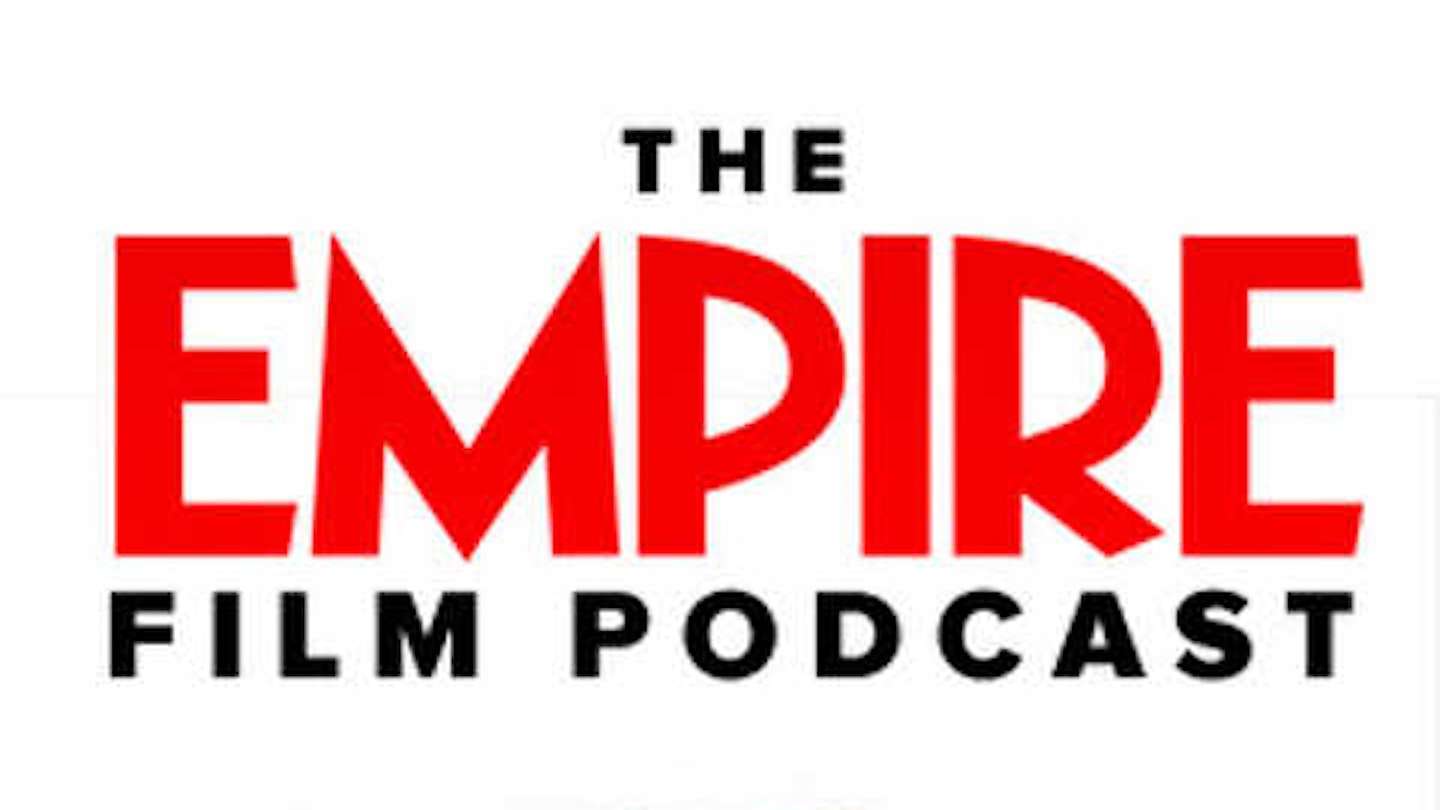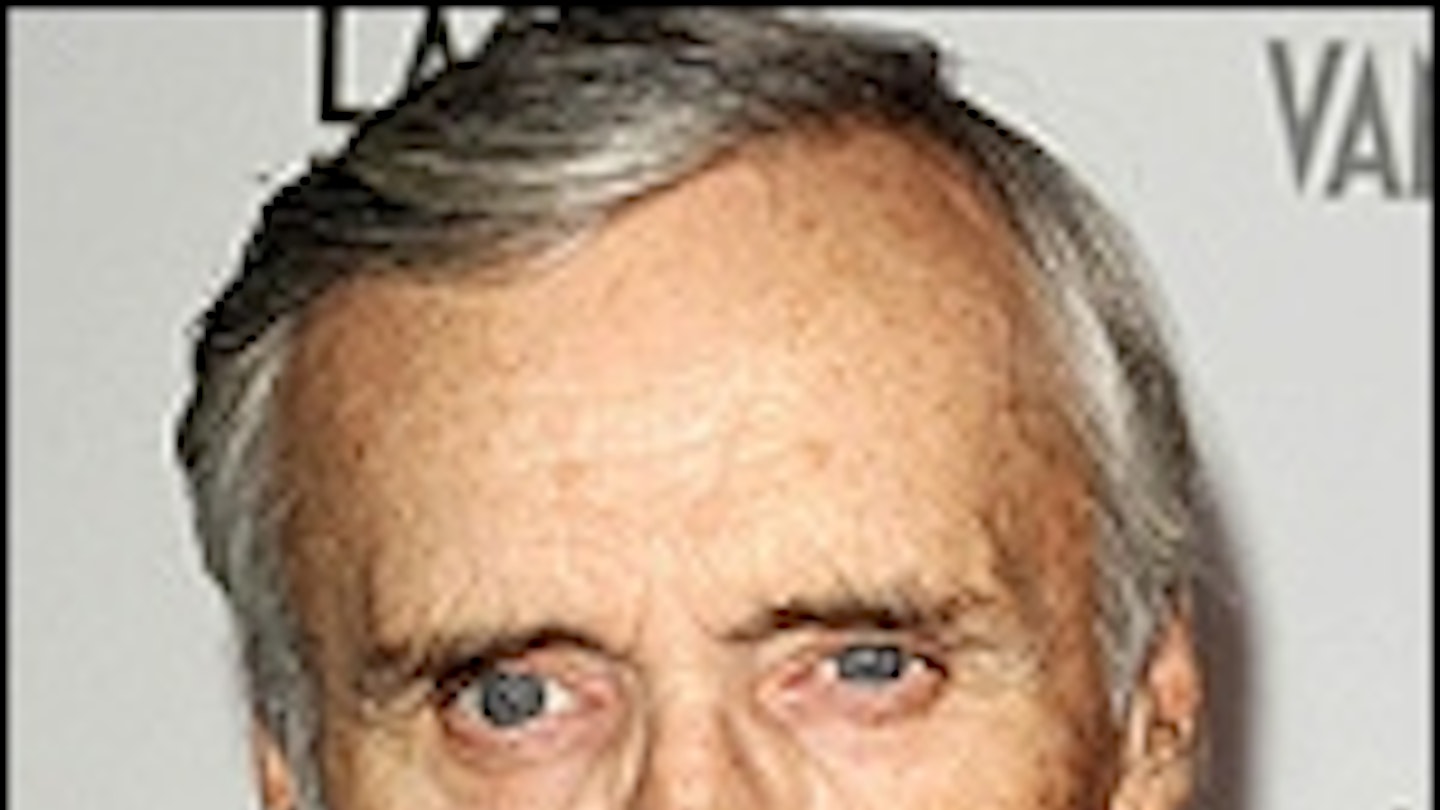Justly celebrated as the film that truly channelled that whole countercultural thing along the downward slope of the sixties, Dennis Hopper’s experimental mishmash of a road movie is flawed by its own concept. It was such a product of its time it feels vacuous and aloof, its so-called greatness exaggerated all out of proportion. So, in approaching the bumpy adventures across the heart of America, or at least its leathery Southern belt, of Captain America (the heroic looking Peter Fonda) and Wolfman (Dennis Hopper looking like he would dance with any devil given the chance) context is everything. This was 1969, the year of Woodstock, the Vietnam War, and the growing discontent in American youth.
What is most apparent is its flagrant deconstruction of what was considered popular cinema. The film is shapeless, a picaresque squall of bizarre encounters between the chopper riding heroes of freedom as they bounce between communes of ‘shroomed hippies, suspicious yokels, to the famous fireside encounter with a booze-riddled lawyer played by Jack Nicholson. To be fair, the film isn’t a dope session, for each woozy slab of drop-out bliss the film counters with a growing sense of dysfunction. These easy riders are looking for an answer that can’t ever be located. They harken to the call of doom.
The open depiction of drugs and drug culture drenched the film in controversy, but what irritates is not the moral dimension more than using such an alternative lifestyle as an excuse to labour the intelligent design with wafty, pointless psychedlia. The New Orleans section, where they are tripping on LSD and hook up with Toni Basil and Karen Black, is a near unwatchable wobble through the filmmakers’ genuine whacked-out adventures shot a year prior to the rest of the film. Hopper probably felt it was outrageously daring, but it drives a huge spoke into the film’s spinning wheels. Thus, while you cannot dismiss its place in history, its power is in what it represented rather than what it did.




